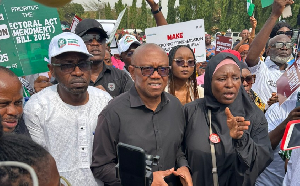The World Bank has blamed the re-emergence of parallel currency exchange market in Nigeria on resistance toward the increasing pressure on the naira and the limited supply of forex at the official window.
The Bank, in a report released on Wednesday in Washington DC, said the premium between the parallel exchange rate and the official rate widened from March 2020 until June 2023.
“Despite changing the official exchange rate to better reflect market conditions in 2021—Nigeria operated multiple currency practices—the parallel rate premium continued to increase to 80 percent in November 2022 and then to about 60 percent in June 2023, as the Central Bank’s interventions to restrict foreign exchange demand and keep the exchange rate artificially low were met with declining FX supply from oil revenues,” said the report.
It added that the prioritisation of strategic sectors and the imposed price ceilings and trade restrictions pushed transactions to the parallel market, which started to account for a large share of the foreign exchange transactions in the country, including for remittances, tourism, and exports of non-oil products.
“After the unification and liberalisation of the exchange rates in June 2023, the NAFEX rate converged to the parallel one, closing the gap. However, resistance toward the increasing pressure on the Nigerian naira coupled with limited supply of FX at the official window has led to the reemergence of the parallel market premium,” the report said.
The report, Africa’s Pulse, shows that Sub-Saharan Africa’s economic outlook remains bleak.
It identified rising instability, weak growth in the region’s largest economies, and lingering uncertainty in the global economy as dragging down growth prospects.
Economic growth in Sub-Saharan Africa, it said, is forecast to decelerate to 2.5% in 2023, from 3.6% in 2022.
It added that Nigeria and Angola will grow at 2.9% and 1.3% respectively due to lower international prices and currency pressures affecting oil and non-oil activity.
Business News of Thursday, 5 October 2023
Source: thenationonlineng.net













